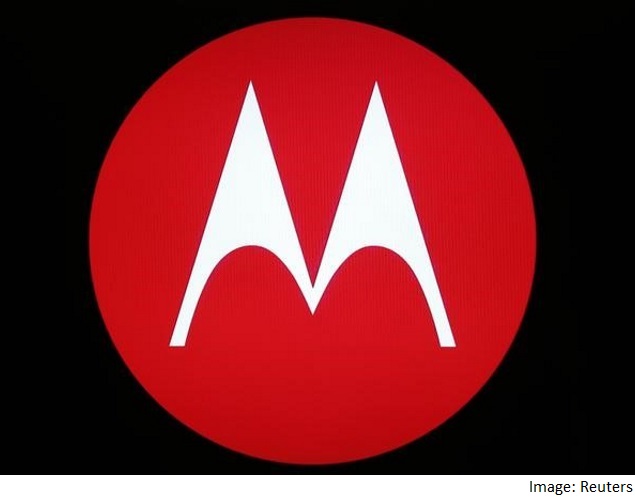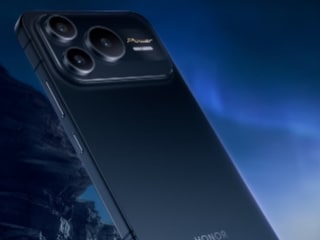- Home
- Mobiles
- Mobiles Features
- Motorola Mobility's Antitrust Lawsuit Could Have Broader Implications
Motorola Mobility's Antitrust Lawsuit Could Have Broader Implications

The evidence is compelling. The cartel of Asian electronics makers worked for more than five years to set the prices of liquid-crystal display screens used in computers and cellphones. They gathered for monthly meetings in private conference rooms at luxury hotels.
They kept notes at these price-rigging meetings. A typical heading: "Extremely confidential. Must not distribute." A telling summary: "Must act together with the Korean makers in order to reap success."
The details surfaced in a Justice Department criminal antitrust investigation, in which first Samsung and then Toshiba, LG, Sharp and other companies cooperated, pled guilty and paid hundreds of millions of dollars in fines.
A large Taiwanese producer, AU Optronics, did not settle, and three years ago the company was convicted in a federal court in San Francisco and ordered to pay $500 million. Two of its executives were sentenced to three years in prison.
Pointing to the same evidence, Motorola Mobility, one of the corporate victims of the price-fixing scheme, filed a follow-on civil antitrust suit, seeking damages from AU Optronics and other members of the cartel. But last November, a federal appeals court in Chicago tossed out Motorola's civil suit, saying the company's overseas subsidiaries could not reap the benefits of America's antitrust laws.
The Supreme Court will say this month if it will take up the issue. But already, the case has brought to light the challenges of applying decades-old antitrust laws to today's global corporations and their often complex and far-flung supply chains.
"To a degree that didn't exist before, things are made everywhere," said William E. Kovacic, an antitrust expert at the George Washington University Law School.
Kovacic, a former chairman of the Federal Trade Commission, said there was a "notable incoherence" in the law and court rulings.
Warning of the business impact of legal uncertainty, the National Association of Manufacturers wrote a friend-of-the-court brief urging the Supreme Court to take the case. The group said it took no position on the criminal or civil cases. Instead, the trade association called for legal clarity.
"Companies," the brief states, "need to know where the legal lines are drawn in order to structure their transactions for goods intended for eventual import into the United States."
Richard A. Posner, a federal appeals court judge and a prominent legal theorist, wrote the opinion in the Motorola case. His opinions, law scholars note, are as much conceptual essays as legal documents - often debated, and never boring. His ruling in a smartphone patent case in 2012, for example, was a sweeping critique of the patent system, describing it as a system in "chaos."
The Motorola case comes at time of change in the legal landscape, as many other countries are stepping up their antitrust enforcement programs and the Supreme Court generally seeks to restrain the reach of U.S. antitrust laws abroad.
Yet the United States remains the venue of choice for plaintiffs to bring civil antitrust suits mainly because the rewards can be so lucrative. Unlike most other countries, U.S. courts offer triple damage awards for successful plaintiffs, even if companies are able to pass along the higher prices they pay for price-fixed goods to consumers.
(Also See: Motorola Working on Two High-End Smartphones With QHD Displays: Report)
On that basis, Motorola is seeking a total award of $3.5 billion - a claim that the defendants say is exorbitantly inflated.
The problem for Motorola, according to Posner, was how the company set up its corporate arrangements. Only 1 percent of the liquid-crystal display panels it bought from the cartel suppliers were shipped directly to Motorola in the United States for assembly in cellphones sold in the United States. Another 42 percent of the panels were shipped to Motorola foreign subsidiaries, mainly in China and Singapore, for cellphones assembled there and sold in the U.S. market. The remaining 57 percent of the panels were bought by Motorola's foreign subsidiaries for cellphones assembled abroad and sold in markets outside the United States.
Motorola asserts that it operates as a "single enterprise," orchestrating its U.S. and overseas operations to design and produce products globally. Posner acknowledges that argument, but points out that corporations like Motorola, which are based in America but operate globally, rarely make the claim that their foreign subsidiaries are bound by all U.S. laws.
Posner said the overseas subsidiaries of companies like Motorola need not conform to the workplace safety or labor laws of the United States - and their subsidiaries could take advantage of low-tax regimes in foreign countries and avoid paying U.S. corporate taxes. (In a court filing, Motorola said it repatriated the profits from its foreign subsidiaries in the five years covered by the cartel case.)
"No doubt," Posner writes, "Motorola thinks U.S. antitrust remedies more fearsome than those available to its foreign subsidiaries under foreign laws."
But, he adds later, "Motorola can't just ignore its corporate structure whenever it's in its interests to do so. It can't pick and choose from the benefits and burdens of United States corporate citizenship."
Motorola, Posner writes, was an "indirect purchaser" of the panels its foreign subsidiaries bought and used to assemble cellphones. And thus, he concludes, Motorola cannot bring a civil antitrust suit in the United States - even though many Motorola cellphones with price-fixed screens were sold in the U.S. market and the Justice Department had a strong criminal case.
The Motorola side disputes Posner's analysis. The judge, said Thomas C. Goldstein, counsel for Motorola, "got it wrong, and this is a superimportant issue."
Some antitrust experts question Posner's ruling. The law cited by Posner, the Foreign Trade Antitrust Improvements Act of 1982, was passed to ensure American exporters that the United States antitrust law would generally not follow them abroad. "But Motorola is an importer here, and the statute has been turned against them, which wasn't the intent of the law," said Harry First, a professor at the New York University School of Law. "The ruling is bizarre in that sense."
His colleague at the NYU law school, Eleanor M. Fox, said if the ruling in the civil case stands, it would be "a retrogressive step for world antitrust enforcement, reducing deterrence and opening the door to more global cartels."
Still, it is unclear how much Posner's ruling might affect the operations of companies and their global trading behavior.
Herbert Hovenkamp, an antitrust expert at the University of Iowa College of Law, says that while the underlying evidence in the criminal and civil cases is similar, the legal standards are different. And he sides with Posner's opinion. "Both cases were rightly decided, in my view," he said.
Antitrust law, Hovenkamp suggests, has to be renewed and reinterpreted for a modern global economy, just as corporations must adapt and change. For proof of the latter, look no further than Motorola itself. In 2006, at the end of the five-year period covered in the cartel case, the company was riding high on the success of its sleek flip-style cellphone, the Razr.
But Motorola lost its leadership in the smartphone era, which began with the introduction of Apple's iPhone in 2007. In 2012, Google bought the struggling company, and two years later sold it off to Lenovo of China.
© 2015, The New York Times News Service
Catch the latest from the Consumer Electronics Show on Gadgets 360, at our CES 2026 hub.
Related Stories
- Samsung Galaxy Unpacked 2025
- ChatGPT
- Redmi Note 14 Pro+
- iPhone 16
- Apple Vision Pro
- Oneplus 12
- OnePlus Nord CE 3 Lite 5G
- iPhone 13
- Xiaomi 14 Pro
- Oppo Find N3
- Tecno Spark Go (2023)
- Realme V30
- Best Phones Under 25000
- Samsung Galaxy S24 Series
- Cryptocurrency
- iQoo 12
- Samsung Galaxy S24 Ultra
- Giottus
- Samsung Galaxy Z Flip 5
- Apple 'Scary Fast'
- Housefull 5
- GoPro Hero 12 Black Review
- Invincible Season 2
- JioGlass
- HD Ready TV
- Laptop Under 50000
- Smartwatch Under 10000
- Latest Mobile Phones
- Compare Phones
- OPPO Reno 15 Pro Max
- Honor Win RT
- Honor Win
- Xiaomi 17 Ultra Leica Edition
- Xiaomi 17 Ultra
- Huawei Nova 15
- Huawei Nova 15 Pro
- Huawei Nova 15 Ultra
- Asus ProArt P16
- MacBook Pro 14-inch (M5, 2025)
- OPPO Pad Air 5
- Huawei MatePad 11.5 (2026)
- Xiaomi Watch 5
- Huawei Watch 10th Anniversary Edition
- Acerpure Nitro Z Series 100-inch QLED TV
- Samsung 43 Inch LED Ultra HD (4K) Smart TV (UA43UE81AFULXL)
- Asus ROG Ally
- Nintendo Switch Lite
- Haier 1.6 Ton 5 Star Inverter Split AC (HSU19G-MZAID5BN-INV)
- Haier 1.6 Ton 5 Star Inverter Split AC (HSU19G-MZAIM5BN-INV)

















